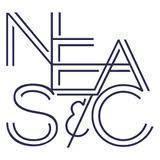



ComprehensiveGuide 2023–2024
LowerSchool
DearParents,
LowerSchoolencompassesGrade1toGrade5andisauthorisedtoofferthePrimaryYears Programme(PYP)oftheInternationalBaccalaureate
OurgoalindeliveringthePYPistodevelopinternationally-mindedstudentswiththe knowledge,skills,concepts,attitudesandlearnerprofileattributesneededtocontinue learningintotheMiddleYearsProgramme(MYP)ortofitseamlesslyintoanothercountry’s educationsystem
AsourstudentsprogressthroughGrades1to5,theydevelopincreasingindependence andagreatersenseofresponsibility,Emphasisisplacedontakingactionand demonstratingagencyinregardstotheirlearning.
Thestudents’understandingoftheworldaroundthemandoftheirroletoplayascitizens oftheworldisnurturedoverthecourseoftheirLowerSchoolexperiences,culminatingin theGrade5PYPExhibitioninwhichstudentsindependentlyconductinvestigations,present findings,andtakeactioninconnectionwithagloballysignificantissue
LowerSchoolstudents,staffandthegeneralschoolcommunityaimtoconsistently exemplifyISB’scorevaluesofCommunity,Integrity,RespectandResponsibility,withthe goalofhelpingourstudentsdevelopintoconfidentandcaringcitizensoftheworld.More informationonourschool’smission,corevalues,beliefsandobjectivescanbefoundinthe ISBParentHandbookandonourschoolwebsiteatwww.isbergen.no.
OurstaffarecommittedtoworkingcloselywitheveryoneintheISBcommunitytomake eachandeveryyearaspecialoneforallstudentsandfamilies.Welcometothe2023-2024 schoolyear!
LeanneHagen
Welcome
Lastupdated:1June2023 3
PrincipalforLowerSchool
Contents Welcome 2 ReportingtoParents 3 Reportcards 4 SchoolDay 5 ClassroomEnvironment 6 TextBooks 6 InformationandCommunicationsTechnology 6 Assembly 7 Swimming 7 GeneralSupplies 7 Supervision 7 HomeworkPolicyGrades1-5 7 StudentRecords 9 SchoolCounsellors 9 IndividualEducationalNeeds 9 IBPrimaryYearsProgramme(PYP) 9 Mathematics 11 LanguageArts,EnglishasaSecondLanguage,andNorwegian 13 Languageinatransdisciplinaryprogramme 14 Englishlanguagesupport–ELS 15 Norwegian 16 Personal,SocialandPhysicalEducation 16 TheArts 17 SocialStudies 19 Science 20 Lastupdated:1June2023 4
ReportingtoParents
ToddleLearningjournalandportfolio: Maintainedthroughouttheschoolyear
Home-SchoolConferences: Twiceayear
Student-ledconferences/EndofUnitcelebration: Twiceayear (exceptgrade5,whodothePYPExhibitioninplaceofonestudent-ledconference)
InternationalSchoolsAssessmentTest: Writtenbygrades3-5inFebruary
NationalNorwegianReadingTests: Grade5
NationalNorwegianMappingTests: Grade3
Reportcards
Aftermuchdiscussion,researchandcarefulconsiderationamongstthelowerschoolstaff andadministration,itwasdecidedthattheschoolwouldnolongersendhometraditional reportcardsforgrades1-5
Staffdeterminedthattheprimarypurposeoftraditionalreportcardsistocommunicate whathasbeendoneintheclassroomandtooutlinestrengthsandgoalsforthestudents Ingoingforward,traditionalreportcardsarenotnecessarilythebestwaytodothis Such reportsdonotprovideanynewinformationtostudents,andstudentsdonotneedreport cardstotellthemaboutwhathasbeenhappeninginclass Aswell,studentsarealwaysin constantcommunicationwithteachersinregardtotheirstrengthsandgoals Recognizing strengthsandsettinggoalsisalsoakeypartofourhome-teacher-studentconferences heldinNovemberandMay
Intermsofparents,traditionalreportcardsingeneraldonotandshouldnotsharenew information.Infact,oneofourreportingrulesatISBisthatthereshouldbenosurprisesfor parentsonreportcards Thehome-teacher-studentconferencesandToddlestudent learningjournalsplayamuchbiggerroleintermsofprovidingtimelyinformationto parentsregardingstudentstrengthsandgoals
AnotherfactorineliminatingtraditionalreportcardswasourimplementationoftheToddle digitallearningportfolioforgrades1-5 WithToddle,parentsnolongerneedtowaitfor conferencesorreportcardstogetfeedbackontheirchild’slearning Instead,thisisnow happeningonaregularbasisacrossthesubjectsandinquiries TheuseofToddleprovides muchmoremeaningfulfeedbacktostudentsandparents,andonanongoingbasis Itis
Lastupdated:1June2023
5
mucheasierforparentstoseewhattheirchildisworkingoninclass,howtheirchildis progressing,andwhattheirgoalsmaybe Astudent’sToddlejournalcanessentiallybe seenasavirtualreal-timereportcard.SharingstudentworkandreflectionsonToddlealso helpsfacilitateadeeperpartnershipbetweenparents,studentsandteachers,aswellas encouraginghomediscussionsonthelearningtakingplaceintheclassroom.
Inaddition,studentsingrades3-5writetheInternationalSchoolsAssessmenttestsin Februaryeachyear.InternationalSchools’Assessment(ISA)isanassessmentprogram thathasbeenspecificallydevelopedtomeasuretheskillsofinternationalstudentsin MathematicalLiteracy,ReadingandWriting Itwasdesignedanddevelopedbythe AustralianCouncilforEducationalResearch(ACER)andhasbeenadministeredsince2001
ISAisbasedontheinternationallyendorsedMathematicalLiteracyandReading FrameworksofOECD’sProgrammeforInternationalStudentAssessment(PISA) Thestudent reportdetailsperformancesinrelationtoscalesthatdescribeincreasinglyadvancedskills inMathematicalLiteracy,ReadingLiteracy(Grades3,4&5)andWriting(Grades4&5)
Parentswillbeprovidedwithacopyoftheirchild’sindividualreport Youcanreadmore abouttheISAtestshere:https://wwwacerorg/au/isa
Parentscanalsoarrangetomeetwithhomeroomorspecialistteachersatanypoint duringtheschoolyeartodiscusstheirchild’sprogressorotherissues.Wealways accommodateparentrequestsformeetingsforwhateverreason
TheschoolwillprovideaLeaversreportforanystudenttransferringtoanewschool It shouldbenotedaswellthatparentscanprovideanewschoolwithexamplesfromtheir child’sToddledigitallearningportfolio,whichcontainsnumeroussamplesofthestudent’s workinvarioussubjectsandinquiries Thenewschoolcanalsobegivenacopyofthe home-teacher-studentconferencereport,withinformationonstudentstrengthsand goals
Lastupdated:1June2023
6
SchoolDay
MondaytoFriday,exceptWednesdays
ClassroomEnvironment
ISBplacesastrongemphasisontheimportanceofhavingapositiveandnurturing teachingandlearningenvironment Childrenaretaughtskillstopromotesocial competenceandreducesocial-emotionalproblems,focusingonthecoreareasof empathy,selfregulation(impulsecontrol,emotionregulation,angermanagement),and socialproblemsolving.TheLowerSchoolusestheResponsiveClassroom asoursocial emotionallearningprogrammeandthisformsthebasisforourmorningmeetingsand classroommanagement.
Thereisalsoastrongfocusonpreventativebullyingstrategiesandhelpingstudentsin developingavarietyofrelationshipskills,includingstrategiesformakingandkeeping friendsandstepsforjoiningagroupactivity Theschoolemphasisesthatallmembersof theschoolcommunitymusttakeresponsibilityfordecreasingbullying
TextBooks
Webelievethatstudentslearnbestthroughauthenticinquiry,sotextbooksaregenerally seenasresourcesratherthanasacurriculum Teachersareencouragedtofacilitatethe childrentogobeyondtextbooksanddigitalcontentandpursuetheirnaturalcuriosities anddesirestoinquire,exploreanddiscover Weaimforourcurriculumtobeoneinwhich
Morning meeting Class Break Class Class Lunch Break Class Class 8:509:15 9:1510:10 10:1010:30 10:3011:25 11:2512:20 12:2012:45 12:4513:10 13:1014:05 14:0515:00 Wednesdays Morning meeting Class Break Class Class Lunch Break Class Class 8:509:15 9:1510:00 10:0010:15 10:1511:00 11:0011:50 11:5012:10 12:1012:30 12:3013:15 Early close
Lastupdated:1June2023 7
studentslearntocollaborate,discoverandmakemeaningoftherealworldaroundthem. ThesearetheessentialtenetsoftheIBprogrammeswhichwedeliver
Intoday’sclassroomwithincreasingaccesstotechnologyandonlineinformation,the rangeofteachingresourcesshouldn’tbelimitedtousingonetextbookpertopicorsubject covered,butratherawiderangeofresourcesthatbestmeetstudents’individualneeds andlearningstylesshouldbeused InformationandCommunicationsTechnology
Allstudentsfromgrades1-4willbeprovidedwithaschool-issuediPadtousethroughout theschoolyear.Studentsingrade5willbeissuedwithaChromebook.
Assembly
LowerSchoolstudentsmeetinassemblyonaregularbasis Theseareopportunitiesto cometogether,communicateandshareideas,performancesandlearningexperiences Awardsarealsogivenouttostudentswhohavebeennominatedbyteachersandother studentsfordisplayingthePYPLearnerProfileattributes,takingactionontheirlearning,or reflectingtheschoolCoreValues
Swimming
Swimminglessonsforstudentsingrades2,3and4areofferedinblocksofweeksperclass Informationregardingtiming,transportandequipmentwillbesenthometoclassesprior totheirswimmingblock ISBhasa1hourslotatSlåtthaugswimmingpoolandstudentsare transportedtoandfromtheschoolusingpublictransport
GeneralSupplies
Youcanfindmoreinformation(includingasupplylistforstudents)onourgrades1-5 curriculumatourwebsitewww isbergenno,underthe“LearningatISB”section-Lower School
Lastupdated:1June2023 8
Supervision
Supervisionfrom07:30-09:00and15:00-16:30isavailableatachargebytrimesterper studentforgrades1through4.
HomeworkPolicyGrades1-5
Indecidingonahomeworkpolicyforgrades1-5,ISBconsideredthefollowing:
● Cross-culturaldatadisprovingtheclaimthatcountrieswhosestudentsdomore homeworktendtobethosewiththebesttestscores
● TopperformingcountrieslikeJapanandFinlandassigninglesshomeworkthan othercountries
● Studiesinvolvingprimaryschoolstudentsfindingnosignificanteffectsongrades andtestscoresbasedontheamountofhomeworkgivenorcompleted
● Studiesshowingthatmanyparentssaytheyhavehadaseriousargumentwith theirchildoverhomeworkthatinvolvedyellingorcrying
● Informationonthebenefitsofchildrenreadingregularlyforinformationandmost importantlyforpleasure,andthatregularpracticeimprovesfluency,word recognition,comprehensionandconfidenceforchildren.
HomeworkforGrades1-4(approximately15-30minutesdaily,includingreading)
Studentsingrades1-4arenotassignedwrittenhomeworkduringtheschoolyear,with occasionalexceptions
Studentsingrades1-4willbeexpectedtoreadonadailybasisathomeduringtheschool week Thiscanbedoneusingachild’shomelanguageaswell
Besidesreading,studentsmayalsobeassignedhomeworktasksthatdonotrequire writing
Examplesofsuchhomeworktasksmightbe:
● Avideotowatchpriortoaclasslesson
● Flashcardstopracticeskills(phonicsormaths)
● Spelling/phonicswordpractice
Lastupdated:1June2023
9
● Helpingparentswithcookingameal(forexample,tostudyfractions,measurement, howtowritedownsteps,etc)
● Playinggamestopractiseskills
● Interviewingafamilymemberinconnectionwithaunitofinquiry
● Onlinemathsprogrammetoreinforceconceptsalreadycovered HomeworkforGrade5(approximately15-45minutesdaily,includingreading)
HomeworkforGrade5willfollowmanyofthesameguidelinesashomeworkforgrades1-4, exceptthattherewillbemorewrittentasksinvolved Thisisdonewithaneyetowards preparingthestudentsforGrade6,wheretheywillhavemorewrittenhomework assignments
StudentRecords
Onlyauthorisedschoolpersonnelandastudent’sparentshaveaccesstoastudent’s records Permissionwillbesoughtfromparentsforthetransferofrecordstoanother school SchoolCounsellors
Theschoolcounsellorssupporttheschoolcommunityinhelpingtoensureapositiveand nurturinglearningenvironment,andareavailabletomeetwithstudentsandparents.
IndividualEducationalNeeds
Studentswithindividualeducationalneedsareidentifiedashavingabarriertolearning,or haveexceptionalgiftsortalents AtISB,wetrytoensurethatstudentswithindividual educationalneedsachievetheirpotentialthroughanadaptedormodifieddifferentiated educationalprogramme TheIENSCoordinatorworkswithmembersoftheteachingstaff, individualstudents,andthestateEducational-PsychologicalService (Pedagogisk-PsykologiskeTjenestenBergen-PPT)todevelopappropriateprogrammes
Ingrades1-10,theschooldoesnothavethefacilitiesorresourcestocaterforstudentswith severephysicalorlearningdisabilities,includinglowcognitivefunctioningorconduct disabilities
Lastupdated:1June2023
10
IBPrimaryYearsProgramme(PYP)
ISBofferschildrenbetweentheagesof3and11thePrimaryYearsProgramme(PYP) The PYPhasrecognitionworldwideasamodelofexemplaryeducationalpractice.Its philosophyisbasedonconstructivisttheoriesoflearning,whichstatethatchildren constructtheirlearningfromwhattheyalreadyknowandcando.Studentsbuildtheir learningbyfindingtheanswerstoquestionstheyinquireinto Theteachingapproachis transdisciplinarysothattraditionalsubjectsareintegratedintooneanothertohelp studentsappreciatethattheworldisacomplexplaceinwhichitisimportanttosee connections.
ThePYPfocusesonfiveessentialelementsoflearning:
● understandingofconcepts
● acquisitionofknowledge
● masteringofskills
● developmentofattitudesandattributes
● decisiontotakeaction
Theknowledgecomponentisdevelopedthroughinquiriesintosixtransdisciplinarythemes ofglobalsignificance,supportedandbalancedbysixsubjectareas.
Thesixthemesare:
● Whoweare
● Whereweareintimeandplace
● Howweexpressourselves
● Howtheworldworks
● Howweorganiseourselves
● Howwesharetheplanet
Thesixsubjectareasinclude:
● Language
● SocialStudies
● Mathematics
● Arts(VisualArtsandPerforming Arts)
● ScienceandTechnology
● Personal,SocialandPhysical Education
TheIBPYPisaconceptdriven,holisticapproachtoeducationandconsistsoftheEssential Elements:
● ApproachestoLearning
Lastupdated:1June2023
11
● Knowledge(TransdisciplinaryThemes/Traditionalsubjects)
● Concepts
● LearnerProfile
● Action
TheIBLearnerProfileistheInternationalBaccalaureate’smissionstatementtranslatedinto learningoutcomes Itisattheheartofthiscommonframeworkandanembodimentof whattheIBmeansby“international-mindedness”.Theseidealsinspire,motivateandfocus theworkofschoolsandteachers,unitingtheminacommonpurpose
Mathematics
Thepowerofmathematicsfordescribingandanalysingtheworldaroundusissuchthatit hasbecomeahighlyeffectivetoolforsolvingproblems.Itisalsorecognizedthatstudents canappreciatetheintrinsicfascinationofmathematicsandexploretheworldthroughits uniqueperceptions.Inthesamewaythatstudentsdescribethemselvesas“authors”or “artists”,aschool’sprogrammeshouldalsoprovidestudentswiththeopportunitytosee themselvesas“mathematicians”,wheretheyenjoyandareenthusiasticwhenexploring andlearningaboutmathematics
IntheIBPrimaryYearsProgramme(PYP),mathematicsisalsoviewedasavehicleto supportinquiry,providingagloballanguagethroughwhichwemakesenseoftheworld aroundus Itisintendedthatstudentsbecomecompetentusersofthelanguageof mathematics,andcanbegintouseitasawayofthinking,asopposedtoseeingitasa seriesoffactsandequationstobememorised
Howchildrenlearnmathematics:Itisimportantthatlearnersacquiremathematical understandingbyconstructingtheirownmeaningthroughever-increasinglevelsof abstraction,startingwithexploringtheirownpersonalexperiences,understandingsand knowledge Additionally,itisfundamentaltothephilosophyofthePYPthat,sinceitistobe usedinreal-lifesituations,mathematicsneedstobetaughtinrelevant,realisticcontexts, ratherthanbyattemptingtoimpartafixedbodyofknowledgedirectlytostudents How childrenlearnmathematicscanbedescribedusingthefollowingstages:
1 Constructingmeaningaboutmathematics:Learnersconstructmeaningbasedon theirpreviousexperiencesandunderstanding,andbyreflectingupontheir interactionswithobjectsandideas Therefore,involvinglearnersinanactive learningprocess,wheretheyareprovidedwithpossibilitiestointeractwith
Lastupdated:1June2023 12
manipulativesandtoengageinconversationswithothers,isparamounttothis stageoflearningmathematics Whenmakingsenseofnewideasalllearnerseither interprettheseideastoconformtotheirpresentunderstandingortheygeneratea newunderstandingthataccountsforwhattheyperceivetobeoccurring This constructwillcontinuetoevolveaslearnersexperiencenewsituationsandideas, haveanopportunitytoreflectontheirunderstandingandmakeconnectionsabout theirlearning.
2 Transferringmeaningintosymbols:Onlywhenlearnershaveconstructedtheir ideasaboutamathematicalconceptshouldtheyattempttotransferthis understandingintosymbols Symbolicnotationcantaketheformofpictures, diagrams,modellingwithconcreteobjectsandmathematicalnotation Learners shouldbegiventheopportunitytodescribetheirunderstandingusingtheirown methodofsymbolicnotation,thenlearningtotransferthemintoconventional mathematicalnotation
3 Applyingwithunderstanding:Applyingwithunderstandingcanbeviewedasthe learnersdemonstratingandactingontheirunderstanding Throughauthentic activities,learnersshouldindependentlyselectanduseappropriatesymbolic notationtoprocessandrecordtheirthinking Theseauthenticactivitiesshould includearangeofpracticalhands-onproblem-solvingactivitiesandrealistic situationsthatprovidetheopportunitytodemonstratemathematicalthinking throughpresentedorrecordedformats Inthisway,learnersareabletoapplytheir understandingofmathematicalconceptsaswellasutilisemathematicalskillsand knowledge
Astheyworkthroughthesestagesoflearning,studentsandteachersusecertain processesofmathematicalreasoning
● Theyusepatternsandrelationshipstoanalysetheproblemsituationsuponwhich theyareworking
● Theymakeandevaluatetheirownandeachother’sideas
● Theyusemodels,facts,propertiesandrelationshipstoexplaintheirthinking.
● Theyjustifytheiranswersandtheprocessesbywhichtheyarriveatsolutions
Inthisway,studentsvalidatethemeaningtheyconstructfromtheirexperienceswith mathematicalsituations Byexplainingtheirideas,theoriesandresults,bothorallyandin writing,theyinviteconstructivefeedbackandalsolayoutalternativemodelsofthinkingfor theclass Consequently,allbenefitfromthisinteractiveprocess Lastupdated:1June2023
13
Mathematicsinatransdisciplinaryprogrammeandwhereverpossible,shouldbetaught throughtherelevant,realisticcontextoftheunitsofinquiry Thedirectteachingof mathematicsinaunitofinquirymaynotalwaysbefeasiblebut,whereappropriate,prior learningorfollow-upactivitiesmaybeusefultohelpstudentsmakeconnectionsbetween thedifferentaspectsofthecurriculum.Studentsalsoneedopportunitiestoidentifyand reflecton“bigideas”withinandbetweenthedifferentstrandsofmathematics,the programmeofinquiryandothersubjectareas.
Linkstothetransdisciplinarythemesshouldbeexplicitlymade,whetherornotthe mathematicsisbeingtaughtwithintheprogrammeofinquiry Adeveloping understandingoftheselinkswillcontributetothestudents’understandingofmathematics intheworldandtotheirunderstandingofthetransdisciplinarytheme Theroleofinquiryin mathematicsisimportant,regardlessofwhetheritisbeingtaughtinsideoroutsidethe programmeofinquiry However,itshouldalsoberecognizedthatthereareoccasions whenitispreferableforstudentstobegivenaseriesofstrategiesforlearning mathematicalskillsinordertoprogressintheirmathematicalunderstandingratherthan strugglingtoproceed
Theneedtocommunicateisinstinctive Thedevelopmentoflanguageisfundamentalto thatneedtocommunicate;itsupportsandenhancesourthinkingandunderstanding. Languagepermeatestheworldinwhichwelive;itissociallyconstructedanddependent onthenumberandnatureofoursocialinteractionsandrelationships
Thelearningprocesssimultaneouslyinvolveslearninglanguage aslearnerslistentoand uselanguagewithothersintheireverydaylives;learningaboutlanguage aslearners growintheirunderstandingofhowlanguageworks;andlearningthroughlanguage as learnersuselanguageasatooltolisten,think,discussandreflectoninformation,ideas andissues(Halliday1980) Anappreciationoftheseaspectsoflanguagelearningmay helpteachersbetterunderstandandenhancestudents’learning However,thesethree aspectsaresoinextricablylinkedtheyarebestnotthoughtofasdiscreteprocesses
Languageplaysavitalroleintheconstructionofmeaning Itempowersthelearnerand providesanintellectualframeworktosupportconceptualdevelopmentandcritical thinking IntheIBPrimaryYearsProgramme(PYP),itisrecognizedthattheteachingof languageshouldbeinresponsetothepreviousexperience,needsandinterestsofthe student,ratherthantheconsequenceofapredetermined,prescriptivemodelfordelivering language.Fragmentinglearningintotheacquisitionofisolatedskillsetscancreate difficultiesforlearners forexample,learnersmaybeabletoread,writeandspellwords correctlyinisolationbutmaynotbeabletoread,writeorspellthosesamewordsinother
LanguageArts,EnglishasaSecondLanguage,andNorwegian
Lastupdated:1June2023 14
contexts.Learners’needsarebestservedwhentheyhaveopportunitiestoengagein learningwithinmeaningfulcontexts,ratherthanbeingpresentedwiththelearningof languageasanincrementalseriesofskillstobeacquired.
ThelanguageprofilesofstudentsinPYPschoolsmaybecomplexanddiverse;however, theinfluenceofmother-tonguedevelopmentissignificantforalllearners.Itis acknowledgedthatdevelopmentofmother-tonguelanguageiscrucialforcognitive development,andinmaintainingculturalidentity.Successinmother-tonguedevelopment isastrongpredictoroflong-termacademicachievement,includingacquisitionofother languages
Thecomplexprocessesinvolvedinlanguagelearningrepresentaseriesofdevelopmental continuums Ateacherisabletoidentifywhereonthosecontinuumsastudentis positionedtobetterdesignappropriate,contextualisedlearningexperiences tomovethe studentfromonedevelopmentphasetothenext Inthisway,thelearnerisabletobuildon establishedskillsandunderstanding,whilebeingsupportedtomeetappropriate challengestoextendtheirlearningwithintheir“zoneofproximaldevelopment”(Vygotsky 1999),whichmayberepresentedbymorethanonephase
InPYPschoolsallstudentshavetheopportunitytolearnmorethanonelanguagefromat leasttheageof7.Everylearnerbenefitsfromhavingaccesstodifferentlanguages,and, throughthataccess,todifferentculturesandperspectives Acquisitionofmorethanone languageenrichespersonaldevelopmentandhelpsfacilitateinternational-mindedness. Forthesereasonsitcouldbearguedthatbilingualism,ifnotmultilingualism,isthehallmark ofatrulyinternationallymindedpersonandthatthisrequirementshouldbecentraltoall threeIBprogrammes However,toacceptthispremiseonewouldhavetoargueinsupport ofthereciprocalposition,thatamonolingualpersonhasalimitedcapacitytobe internationallyminded ThisisnotthepositionthePYPhaschosentoadopt Aswellasthe learningofanadditionallanguage,theotherelementsofthePYPframeworkthat contributetointernational-mindednessaredescribedinMakingthePYPhappen:A curriculumframeworkforinternationalprimaryeducation(2007) MostIBWorldSchools implementingthePYP,particularlystateornationalsystemprimaryschools,wouldstruggle tocreatealearningcommunitywherebilingualismwasarealisticgoal indeed,itwould beanimpossibilityinmostcases Consequently,thestrategicgoaloftheIBtobroaden accesstoitsprogrammeswouldbeinconflictwiththenotionofIBWorldSchoolshaving bilingualismasagoalforalloftheirstudents
Effectivelanguageteachingandlearningaresocialacts,dependentonrelationshipswith others,withcontext,withtheenvironment,withtheworld,andwiththeself Suchlearningis relevant,engaging,challengingandsignificant Exposuretoandexperiencewith languages,withalltheirrichnessanddiversity,createsaninquisitivenessaboutlifeand learning,andaconfidenceaboutcreatingnewsocialinteractions Languageprovidesa Lastupdated:1June2023
15
vehicleforlearnerstoengagewiththeworldand,inanIBWorldSchool,torelateto,and accept,responsibilityforthemissionoftheIBto“helptocreateabetterandmorepeaceful world”.
Languageinatransdisciplinaryprogramme
Languageisinvolvedinalllearningthatgoesoninaschool,inboththeeffectiveand affectivedomains Learnerslisten,talk,readandwritetheirwaytonegotiatingnew meaningsandunderstandingnewconcepts Inthe“knowledge”areaofthePYP,language isthemostsignificantconnectingelementacrosstheschool’scurriculum,bothwithinand outsideitstransdisciplinaryprogrammeofinquiry
Itistheschool’sresponsibilitytoprovideauthenticcontextsforlanguageteachingand learninginallareasofthecurriculumthatareareflectionof,andrelevantto,the communityoflearners,andtotheeducationaltheoriesunderpinningtheprogramme
InPYPschoolsthereshouldbeopportunitiesforstudentstonegotiatetheirroles Literacy, includingoralandvisualliteracyaswellastheabilitytoreadandwrite,becomes increasinglyimportantasgreaterdemandsareplacedonlearnersasparticipantsinthe learningprocess
Languageprovidesavehicleforinquiry Inaninquiry-basedclassroom,teachersand studentsenjoyusinglanguage,appreciatingitbothfunctionallyandaesthetically Thelove andenjoymentoflanguagethroughtheintegrationofliteratureintostudentinquiryisan indicatorofgoodpracticeinaPYPclassroom Forexample,thismayinclude:aseriesof booksreadasanauthorstudy;regionalfairytalesaspartofaunitofinquirywitha particularsocialstudiesemphasis;discussingascientist’sbiographyoranewspaper articletofront-loadascienceinvestigation;earlyyearscountingstoriesasreinforcement formathematicsdevelopment;andthecomparisonandpracticeofillustrationtechniques toencouragethedevelopmentofartskills
Theprogrammeofinquiryprovidesanauthenticcontextforlearnerstodevelopanduse language Whereverpossible,languageshouldbetaughtthroughtherelevant,authentic contextoftheunitsofinquiry.Theteachershouldprovidelanguagelearningopportunities thatsupportlearners’inquiriesandthesharingoftheirlearning Regardlessofwhether languageisbeingtaughtwithinoroutsidetheprogrammeofinquiry,itisbelievedthat purposefulinquiryisthewayinwhichlearnerslearnbest Thestartingpointshouldalways belearners’priorexperienceandcurrentunderstanding
Whenteachersplanlearningexperiencesthatenablelearnerstodeveloplanguagewithin meaningfulandenjoyablecontexts,learnersareabletomakeconnections,applytheir
Lastupdated:1June2023 16
learning,andtransfertheirconceptualunderstandingtonewsituations.Thisprogressive conceptualdevelopment,togetherwithanenjoymentoftheprocess,providesthe foundationforlifelonglearning.
Englishlanguagesupport–ELS
EnglishisthelanguageofinstructionatISB StudentswhocometoISBwithoutfluencyin Englisharegiventhehelpnecessarytoensurethattheycanfullybenefitfromtheschool programmeasquicklyaspossible Helpgivenmaybeintheformofin-classsupport, separateELSlessonswithaspecialistteacher,analternativeprogrammeinEnglish Languageclasses,oracombinationofthetwo
Theschool’ssystemforassessingELSstudentshasbeendevelopedbasedonthe EuropeanLanguagePortfolio,theAmericanWIDA(World-ClassInstructionalDesignand Assessment)andtheIBdocumentation
Norwegian
NorwegianisthesecondarylanguageoftheschoolandofferedatLanguageAandB levelsstartingfromGrade1 ThreehoursofNorwegianismandatoryforallstudentsstarting fromGrade1,whichadditionallyhasafocusonNorwegianCulture
NorwegianAforgrades1-5followsthePYPphasesforthesubjectLanguageArtsin conjunctionwiththeNorwegianNationalCurriculum
NorwegianBisforstudentsenteringISBfromGrade1onwardswithlittleornoNorwegian language TheyreceiveinstructionseparatelyfromNorwegianAstudentsandare assessedusingNorwegianLanguageArtsBobjectives Theemphasisisplacedon teachingthestudentstherudimentarylanguageskillstoenablethemtofunctionin everydaysociety
ThenationaltestinreadingforGrade5isheldinNovember AllLanguageAstudentssitfor thesetests OtherLanguageBstudentsmaysittestsatparentalrequest Resultsof individualstudentsaresharedwithparents
ThereiscompulsoryNationaldiagnostictestinginGrade3(readingandmathematics)in Norwegian.TheschoolcanchoosetogivedispensationtoLanguageBstudentsifit choosestodoso Theresultsfromthesetestsareusedasoneofmanytoolstoidentifyifa childwouldbenefitfromlearningsupportorfurtherdifferentiationinNorwegianclasses.
17
Lastupdated:1June2023
Personal,SocialandPhysicalEducation
PSPEisanintegralpartofstudents’everydaylifeatschoolandathome Itisanessential partofthecurriculumand,asstudentsengagewithitacrossandbetweenthesubjects, theycometoadeeperunderstandingofitsrelevanceandapplicabilitytotheireveryday lives.Appropriateattitudesandbehavioursarealsomodelledwithintheschoolandthe schoolcommunity
Studentslearnbestwhenthelearningexperiencestheyengagewithprovidethemwiththe motivationtoachievetheirpersonalgoals PSPEpromotestransdisciplinarylearning throughthetransdisciplinarythemes,thelearnerprofileandallelementsofthe programme Schoolsthathavelocaland/ornationalcurriculumrequirementsshould articulatehowbestthesecanbeincorporatedintotheirplanningandteachingofPSPE
IncludingPSPEinanintegratedapproachtothecurriculumguidesthestudents’learning processinallthesubjectsandbeyondschool Thisapproachprovidesopportunitiesfor collectiveandcoordinatedimplementationthatcanbecommunicated,understoodand undertakenbythewholeschoolcommunity PSPEoffersaneffectivevehicleforopeningup healthydialoguebetweenschoolandhome.Inthisway,schoolandhomemayfunctionas partnersineducation,makinglearningmorerelevanttothechildand,therefore,more effectiveandenduring.
RegardlessofwhetheraspectsofPSPEarebeingtaughtwithinoroutsidetheprogramme ofinquiry,purposefulinquiryisstillconsideredtheprincipalwayinwhichstudentslearn. Thestartingpointforalllearningshouldalwaysbethestudents’priorexperienceand currentunderstanding Whenteachersplanlearningexperiencesthatenablestudentsto developpersonally,sociallyandphysically,studentsareabletomakeconnections,apply learning,andtransferconceptualunderstandingtonewsituations
Carefullyselectedchildren’sliteraturecanprovideusefulsupporttolearningandteaching aboutPSPE Storiesandpoemscanbereadtointroducenewareasoflearningorto provideapromptfordiscussionamongthestudents ManyoftheattributesoftheIB learnerprofileareclearlyvisibleinarangeofchildren’sliterature,andstudentsare encouragedtorecognizetheseattributes,aswellastheattitudes,inthecharactersofthe literatureselected
PhysicaleducationinaPYPschoolshouldbemorethanjuststudentparticipationinsports andgames Itspurposeshouldbetodevelopacombinationoftransferableskills promotingphysical,intellectual,emotionalandsocialdevelopment;toencouragepresent andfuturechoicesthatcontributetolong-termhealthyliving;andtounderstandthe culturalsignificanceofphysicalactivitiesforindividualsandcommunities.Therefore,inthe PYP,thereshouldbespecificopportunitiesforlearningaboutmovementandthrough movementinarangeofcontexts.Studentsofallabilitiesarechallengedtoimprovetheir
18
Lastupdated:1June2023
movementskills,buttheyarealsosupportedandencouragedtoenjoyphysicalactivity andseeitaspartofahealthyandactivelifestylewithconnectionstootherareasofthe curriculumandcommunity.Inaddition,outdooreducationandtheskillsneededtocoexist inournaturalenvironmentareincorporatedinthePSPEcurriculumandthelearningis takenoutsidewheneverpossible.
TheArts
ArtsareintegraltothePYP Theyareapowerfulmodeofcommunicationthroughwhich studentsexploreandconstructasenseofselfanddevelopanunderstandingoftheworld aroundthem Artsprovidestudentswithawiderangeofopportunitiesandmeansto respondtotheirexperiencesandengagewithhistorical,socialandculturalperspectives Thestudentsarestimulatedtothinkandtoarticulatetheirthoughtsinnewways,and throughavarietyofmediaandtechnologies
ThePYPrecognizesthatnotalllearningcanbesupportedsolelythroughlanguage,and thatartsasamediumofinquiryalsoprovideopportunitiesforlearning,communication andexpression.Learningaboutandthroughartsisfundamentaltothedevelopmentofthe wholechild,promotingcreativity,criticalthinking,problem-solvingskillsandsocial interactions.
InthePYP,artsareidentifiedasdance,drama,musicandvisualarts Eachoftheseartsisa significantdisciplineinitsownright,butthetransdisciplinarynatureofartsgivesthem relevancethroughoutthecurriculum Artspromoteattitudessuchasempathyand appreciation,andskillssuchasanalysis,thathelpustoseetheuniquenessofeachperson aswellasexplorethecommonalitiesthatconnectus
Workinartsisawayofconveyingmeaning,sharingaculture,developingone’ssenseof self,andexpandingknowledge.Itprovidesopportunitiestoreflectonaestheticexperience, toengagetheimaginationandexplorewhatisuncertain Throughengagingwithand creatingartworks,learnersareencouragedtoreconsiderfamiliarconceptsandthink aboutissuesofcultureandidentity
Byrespondingtotheworkofotherartists,theyareinvitedtosituatetheirowncreativity withinabroadercontext Inourrapidlychangingdigitalage,studentsinhabitaworld saturatedwithimages,soundsandperformances.StudentsinthePYPcontinuallyexplore imaginativeusesofnewmediatoolsbeyondtheirbasicfunctionalapplications, discoveringalternativeorindividualwaystoconceptualisetheroleofdigitaltechnologies intheirlives Lastupdated:1June2023
19
Theartsdevelopinnovativethinkingandcreativeuseoftechnologies,andinsodoing preparestudentstoparticipatefullyinthismultifacetedworld TheIBlearnerprofileis integraltolearningandteachingartsinthePYPbecauseitrepresentsthequalitiesof effectivelearnersandinternationallymindedstudents Thelearnerprofile,togetherwiththe otherelementsoftheprogramme knowledge,concepts,skillsandaction informs planningandteachinginthearts
Artsengagestudentsincreativeprocessesthroughwhichtheyexploreandexperimentin acontinualcycleofactionandreflection SuchcreativeprocessesareseenbythePYPas thedrivingforceinlearningthroughinquiry Fromanearlyage,studentshavethe opportunitytodevelopgenuineinterests,togivecarefulconsiderationtotheirlearningand tobecomeself-criticalandreflective Reflectingonandevaluatingtheirownlearningand thelearningofothersisvital,andempowersstudentstotakeintellectualrisks
Exposuretoandexperiencewithartsopensdoorstoquestionsaboutlifeandlearning The processofmakingandappreciatingartsisgratifyingandwillencouragestudentsto continuecreatingthroughouttheirlives
Studentsdrawonawiderangeofstimuli:thecreativeworksofprofessionalartists; contemporaryandhistoricalliterature;music,artwork,danceandstories Dance,drama, musicandvisualartworkdevelopnaturallyfromstudents’ownimaginations,observations, real-lifeexperiences,feelings,valuesandbeliefs Introducingissuesandconceptsthrough appropriatemediagivesthemmeaningandallowsstudentstotakeownershipofthem.
Evidenceofstudents’learningwillbeseenintheirwillingnessandabilitytotakeactionin ordertomakeadifferenceintheworld
SocialStudies
SocialStudiesobjectivesareinquiredintoviatheunitsofinquiry,andincludethefollowing subjectstrands:
Humansystemsandeconomicactivities:Thestudyofhowandwhypeopleconstruct organisationsandsystems;thewaysinwhichpeopleconnectlocallyandglobally;the distributionofpowerandauthority
Socialorganisationandculture:Thestudyofpeople,communities,culturesandsocieties; thewaysinwhichindividuals,groupsandsocietiesinteractwitheachother
Continuityandchangethroughtime:Thestudyoftherelationshipsbetweenpeopleand eventsthroughtime;thepast,itsinfluencesonthepresentanditsimplicationsforthe future;peoplewhohaveshapedthefuturethroughtheiractions.
Lastupdated:1June2023 20
Humanandnaturalenvironments:Thestudyofthedistinctivefeaturesthatgiveaplace itsidentity;howpeopleadapttoandaltertheirenvironment;howpeopleexperienceand representaplace;theimpactofnaturaldisastersonpeopleandthebuiltenvironment.
Resourcesandtheenvironment:Theinteractionbetweenpeopleandtheenvironment; thestudyofhowhumansallocateandmanageresources;thepositiveandnegative effectsofthismanagement;theimpactofscientificandtechnologicaldevelopmentson theenvironment.
TheSocialStudiesskills(fromtheIBPYPSocialStudiesContinuum)taughtthroughouttheIB PYPare:
● Formulateandaskquestionsaboutthepast,thefuture,placesandsociety
● Useandanalyseevidencefromavarietyofhistorical,geographicalandsocietal sources
● Orientateinrelationtoplaceandtime
● Identifyroles,rightsandresponsibilitiesinsociety
● Assesstheaccuracy,validityandpossiblebiasofsources
Science
Scienceobjectivesareinquiredintoviatheunitsofinquiry,andincludethefollowing subjectstrands:
Livingthings:Thestudyofthecharacteristics,systemsandbehavioursofhumansand otheranimals,andofplants;theinteractionsandrelationshipsbetweenandamongthem, andwiththeirenvironment.
Earthandspace:ThestudyofplanetEarthanditspositionintheuniverse,particularlyits relationshipwiththesun;thenaturalphenomenaandsystemsthatshapetheplanetand thedistinctivefeaturesthatidentifyit;theinfiniteandfiniteresourcesoftheplanet
Materialsandmatter:Thestudyoftheproperties,behavioursandusesofmaterials,both naturalandhuman-made;theoriginsofhuman-madematerialsandhowtheyare manipulatedtosuitapurpose
Forcesandenergy:Thestudyofenergy,itsorigins,storageandtransfer,andtheworkit cando;thestudyofforces;theapplicationofscientificunderstandingthroughinventions andmachines.
Lastupdated:1June2023
21
TheScientificskills(fromtheIBPYPScienceContinuum)taughtthroughouttheIBPYPare:
● Observecarefullyinordertogatherdata
● Useavarietyofinstrumentsandtoolstomeasuredataaccurately
● Usescientificvocabularytoexplaintheirobservationsandexperiences
● Identifyorgenerateaquestionorproblemtobeexplored
● Planandcarryoutsystematicinvestigations,manipulatingvariablesasnecessary
● Makeandtestpredictions
● Interpretandevaluatedatagatheredinordertodrawconclusions
● Considerscientificmodelsandapplicationsofthesemodels(includingtheir limitations)
Lastupdated:1June2023
22



